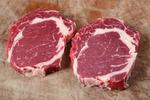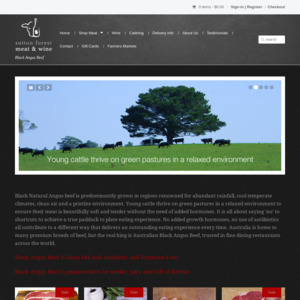2kg Grass Fed Scotch Fillet Steaks PLUS FREE HOME DELIVERY
This special is exclusive for ALL OZ Bargain shoppers
Scotch Fillet Saver Pack
What you get:
8 x 250g grass fed scotch fillet steaks for ONLY $80 (plus free home delivery)
https://suttonforestmeatandwine.com.au/collections/packages/…
This will normally retail for $115 delivered
cryovaced to retain freshness for 21 days in the fridge or 6 months in the freezer
Enter Code OZ to receive your free shipping
We deliver next day to Melbourne/Brisbane/Central Coast/Newcastle/ACT/Sydney
OFFER ENDS WHEN STOCK RUNS OUT


How do you feed scotch fillet steaks?